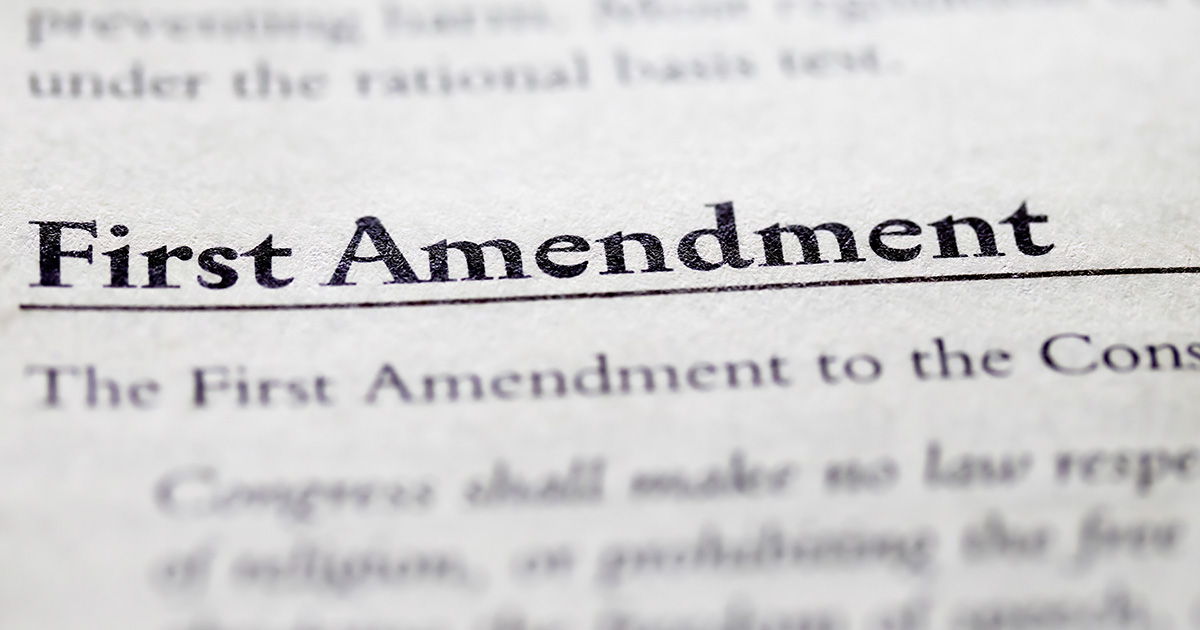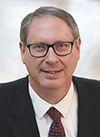
Aug. 18, 2025 – The University of Wisconsin-Madison’s (UW) removal of Madeline Krasno’s comments on its Facebook and Instagram posts violated the First Amendment because its policies were not reasonable or content-neutral, a 2-1 majority on a U.S. Court of Appeals for the Seventh Circuit recently held in
Krasno v. Mnookin, No. 22-3170 (Aug. 1, 2025).
“In short, [UW’s] inflexible and context-blind keyword filters do not reasonably further its ‘off-topic’ justification when there is no way to know before a post is created whether a given phrase will be on- or off-topic in relation to the post,” wrote Judge Doris L. Pryor, joined by Judge Ilana Diamond Rovner.
Disputing the majority’s analysis and a case it relied upon, Judge Frank H. Easterbrook dissented.
 Jay D. Jerde, Mitchell Hamline 2006, is a legal writer for the State Bar of Wisconsin, Madison. He can be reached by
email or by phone at (608) 250-6126.
Jay D. Jerde, Mitchell Hamline 2006, is a legal writer for the State Bar of Wisconsin, Madison. He can be reached by
email or by phone at (608) 250-6126.
“[M]y colleagues conclude that the move from wisc.edu or an alumni site to facebook.com flips the constitutional rule,” he wrote. “Instead of the editors being allowed to choose, the readers get to compel [UW] to include their submissions.”
Social Media
UW operates public Facebook and Instagram accounts with posts that speak as “the official voice of the University.”
The Office of University Communications oversees the accounts and operates under a policy that reserves “the right to remove any content for any reason,” including “off-topic” comments.
UW enforces these limitations both by manually removing comments based on employee discretion and by using a series of keyword filters that automatically hide comments with the prohibited words.
Krasno’s comments on UW’s posts brought up what she saw as the cruelty of UW’s primate research. She noticed that UW removed her comments. UW later restricted her Instagram account, “automatically hiding her comments.”
To get around keyword filters, Krasno began altering spellings to get her comments seen.
On Feb. 10, 2021, Krasno sued UW’s Board of Regents and leaders, alleging that UW violated her First Amendment rights through its censorship on UW comment threads.
The U.S. District Court for the Western District of Wisconsin granted summary judgment to UW, holding that comment threads to UW posts were nonpublic forums and UW’s policies complied with constitutionally required “reasonable and viewpoint neutral” standards.
Government Speech
UW’s comment threads “are government-controlled property” requiring an analysis of whether UW was speaking for itself – and the public would view it that way – or admitting “private speech on property it controls.”
The difference, which the majority illustrated by case law, is whether a government “curated” or “actively shaped” the message, or instead allowed individuals to speak on government property.
UW’s comment threads fit the latter category, the majority said, because UW didn’t actively select the comments, and automatic keyword filters only “passively” reviewed comments in a limited way, not by substance and, as Krasno demonstrated, could be circumvented.
The comments on social media, the majority explained, showed that they did not convey an official UW message but could be a rebuttal. The author’s name appears before the comment. UW has replied to comments, and social media offered a readily understood place for debate.
Because the majority found that UW “does not display the comments of others as its
own speech, but instead opens its comment threads for private expression,” the next inquiry required evaluating Krasno’s constitutional claims by “the nature of the relevant forum.”
Forum
Government property, based on U.S. Supreme Court precedent, may be one of four types of forums. Traditional public forums and designated public forums are places one expects debate.
The other two forums are more private, permitting government greater flexibility to restrict speech. A limited public forum is “property ‘limited to use by certain groups’” or certain discussions. A nonpublic forum is a location of internal government operations.
In those latter forums, any restrictions must be reasonable and viewpoint neutral.
The majority fit comment threads to UW posts as a limited public forum.
The threads “are inherently compatible with expressive activity.” They offer a place for discussion, even though UW reserved the right to remove content.
Another court reached the same conclusion in
People for the Ethical Treatment of Animals v. Tabak, 109 F.4th 627 (D.C. Cir. 2024), the majority explained while also distinguishing itself from the dissent.
Reasonable and Viewpoint Neutral
With the proper forum in view, the majority held that UW’s “off-topic rule as applied to Krasno” was “not viewpoint neutral, but instead discriminates against Krasno’s anti-animal testing and pro-animal rights viewpoint.”
The keyword filters include many “terms that one would reasonably expect to be used by individuals opposed to animal testing.” And UW admits that it “has hidden an on-topic comment by Krasno.”
The “off-topic” rule, the majority held, was “unconstitutional because it is unreasonable.” Such a rule requires definition. Instead, UW “has neither clarified what it means to be ‘off-topic’ nor provided ‘objective, workable standards’” for guidance.
Keyword filters themselves are unreasonable because they are “inflexible and unresponsive to context” and “the record contains no evidence that [UW] manually approves on-topic comments initially hidden by its filters,” the majority explained.
The majority concluded that UW’s “off-topic comment restriction, as currently written and enforced against Krasno, is unreasonable under the First Amendment.”
Irreconcilable
Judge Easterbrook took a different path. From
On Wisconsin alumni magazine to letters to the editor, from a posted PDF of the magazine to a magazine website with clickable links – UW has all of them – and in the transformation from paper to digital, letters to the editor become “comments” or “posts, he explained.
The magazine has editors who choose what to print from authors or letters to the editor and guidelines to delegate the job. “A governmental body has the same right to speak as any private entity,” Judge Easterbrook wrote.
The next step arrives in this case, the equivalent of an alumni magazine on Facebook. They “use the Guidelines to select which comments will appear there,” Judge Easterbrook explained.
“This should not make a constitutional difference. [UW] remains the speaker and editor,” Easterbrook wrote. Facebook is privately controlled, which should justify allowing greater speech restrictions.
“Moving from a site under [UW’s] control to a private one (Facebook) should curtail the rights of the general public to compel [UW] to include what it deems anti-University speech.”
UW’s standards are like any open-ended guidelines a government may make, such as to curate an art museum or stock a public library, Judge Easterbrook explained.
Finally, the majority’s reliance on
Tabak, Judge Easterbrook noted, ignores government speech precedent. Even worse, a case cited in
Tabak “lacks precedential force, given the vacatur” and “has taken its lumps from academic commentators.”
None can be reconciled, Judge Easterbrook concluded, with fundamental U.S. Supreme Court cases.
This article was originally published on the State Bar of Wisconsin’s
Wisbar Court Review blog, which covers case decisions and other developments in the Wisconsin Supreme Court, the Wisconsin Court of Appeals, and the U.S. Court of Appeals for the Seventh Circuit. To contribute to this blog, contact
Joe Forward.
